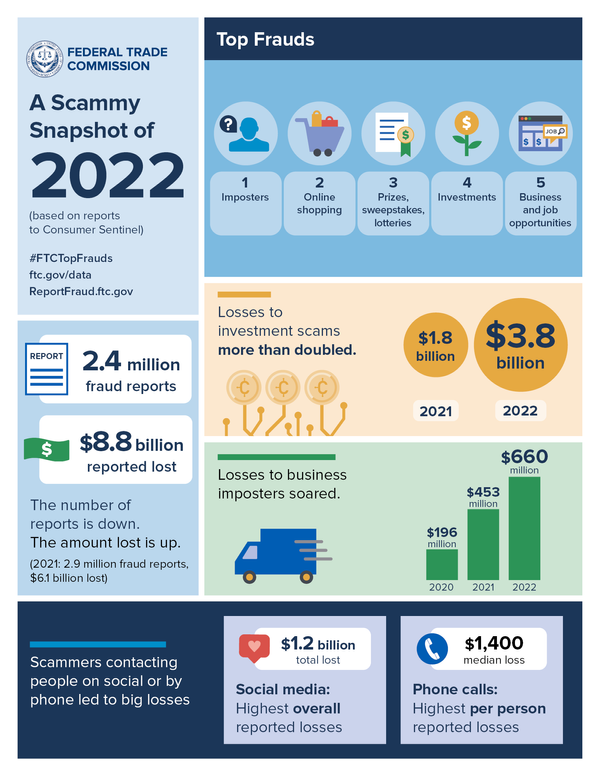One day, John got an email from his bank saying his account was hacked, and someone used his credit card without his permission. John was confused since he had never lost his credit card or shared his financial information online.
After investigating, John found out that the hacker stole his personal information, including his credit card details, and used the information collected by the social media platform, including his activity data and location information, to access John's account.
Does this story sound familiar?
The issue of privacy in social media has been a concern for a long time. With the rise of social networking platforms in the mid-2000s, people started sharing more and more personal information online, which raised questions about how that data was being used and who had access to it.
Over the years, many incidents have brought social media privacy into the public eye. From the Cambridge Analytica scandal in 2018 to the recent WhatsApp privacy policy update, these incidents have shown us just how vulnerable our personal information can be when we use social media.
Newly released Federal Trade Commission data shows that consumers reported losing nearly $8.8 billion to fraud in 2022, an increase of more than 30 percent over the previous year.
As someone who values my privacy and the privacy of others, I find these incidents profoundly concerning. Social media is supposed to be a tool for connecting people and sharing information, but when our personal data is being collected, sold, or misused without our consent, it can be hard to trust these platforms.
That's why I believe we must have an honest conversation about social media privacy and what we can do to protect ourselves.
So we will take a look at the risks of it and we will help you to diminish those risks by taking some important steps! Let's begin!
I. Risks of Social Media Privacy
Let's say that John frequently uses a social media platform. When he signed up for the platform, he provided his name, email address, and date of birth. He also allowed the platform to access his location data, which allows the platform to suggest nearby events and businesses that may be of interest to him.
When John logs into the platform, he scrolls through his feed, liking and commenting on posts from his friends and following pages related to his hobbies and interests. The platform tracks all of this activity and uses it to personalize John's feed and suggest content that it thinks he will enjoy.
The platform also tracks John's interactions with advertisements on the platform, including the ads he clicks on and the products he purchases through the platform. This data can be used to deliver more relevant advertisements to John in the future.
It sounds alright until now, isn't it? However while this data is used to personalize the user's experience on the platform, it can also be shared with third-party advertisers and can potentially be used for malicious purposes.
So what can be these purposes?
Identity theft
Remember John had lost his social media identity to a hacker. John is not the only one, 27 million American consumers are victims of identity-related fraud scams.
Identity theft occurs when someone steals your personal information—such as your Social Security Number, bank account number, and credit card information.
Phishing
Scammers send emails or messages pretending to be someone they trust to obtain sensitive information like login credentials, financial information, and personal details. Researching which best bank offers advanced security features for online transactions can help protect your financial information from potential social media breaches.
This information can then be used to commit fraud or steal identities. MMoreover, integrating an insider threat platform can help detect and prevent unauthorized access or misuse of sensitive information from within the organization. Implementing network access control measures alongside such platforms enhances security by restricting access to sensitive systems based on user identity and device compliance.
Online harassment
Cyberbullies can use personal information shared on social media to target individuals and subject them to abuse and threats. However, cybercriminals are not the sole party motivated to spy on you. If you are worried your ex is stalking you, take immediate action to restore privacy. Keep reading to learn how to protect your social media privacy.
Data mining and IP tracking
Data mining and IP tracking can be dangerous because they can allow third parties to collect and analyze personal data without the user's knowledge or consent. Data mining involves the process of extracting valuable information from large data sets. This data can include personal information, such as browsing history, search queries, and purchase history. Understanding current data privacy trends can help users anticipate and mitigate these risks, ensuring better protection of personal information.
Governments or law enforcement agencies can also use data mining and IP tracking to monitor citizens' online activities, which can raise concerns about privacy and civil liberties.
II. Solutions for Social Media Privacy
Use VPN
Social media privacy is much more about managing the information that's being shared online and by limiting social media network tracking. VPNs and proxies do help by hiding the original IP address from the network, however, if you still share everything publicly – data harvesting remains as easy as ever." Justas Palekas, Head of Product at IPRoyal, a leading residential proxy provider
A secure VPN encrypts your internet connection and routes it through a remote server, making it difficult for anyone to intercept or track your online activities, including data mining and IP tracking. It is so powerful that people use a built-in vpn browser to add an extra layer of security and privacy to their online browsing. Similarly to a VPN for PC, adopting services like proxy-store can further enhance your online anonymity, safeguarding against the potential risks of data mining and IP tracking by providing mobile proxy solutions that shield your digital presence. It also hides your real IP address, making it difficult for advertisers to target you based on your location. Using reliable residential proxies alongside mobile proxies can provide even greater security by masking your real IP address with one that appears more authentic and harder to detect.
Limit Personal Information Sharing
Another important step towards protecting your privacy on social media is to limit the amount of personal information you share on your profiles. Avoid posting sensitive information such as your home address, phone number, or financial information. Be cautious when providing personal information to third-party applications, games, and quizzes that may be used to harvest your data. Implementing effective consent management can help mitigate risks associated with data sharing. In larger teams many incidents happen due to staff members being inaccurate when sharing data, so participating in security awareness training can help users recognize potential threats and avoid risky online behavior.
Review and Adjust Privacy Settings
Most social media platforms offer various privacy settings that allow users to control who can see their posts, photos, and personal information. Reviewing and adjusting these settings regularly is important to ensure that your information is only visible to those you trust. Consider limiting the visibility of your profile to your friends only, and avoid using public Wi-Fi networks when accessing social media platforms. Additionally, using proxy locations can help mask your real IP address, adding an extra layer of security when accessing social media platforms from different networks.
Use Two-Factor Authentication
Enabling two-factor authentication on your social media accounts is another effective way to protect your privacy. Two-factor authentication requires a second form of verification, such as a text message or biometric scan, in addition to your password to access your account. This makes it difficult for hackers to gain access to your account even if they manage to steal your password.
Regularly Monitor Your Accounts
Monitoring your social media accounts regularly for any unauthorized access or suspicious activity is important. Check your account settings, activity logs, and notifications regularly to ensure that your account is secure. If you notice any suspicious activity, such as unauthorized logins or posts, immediately report it to the social media platform and change your password.
Wrapping Up
The issue of social media privacy has become a major concern for people worldwide. Personal data shared on social media platforms can be vulnerable to theft and misuse by hackers, advertisers, and even governments.
We need to have honest conversations about social media privacy and take steps to protect ourselves. This means being vigilant, limiting personal information sharing, regularly monitoring our accounts, and using tools like VPN, two-factor authentication, and reviewing privacy settings. By taking these steps, we can help ensure that our personal data remains safe and secure.






